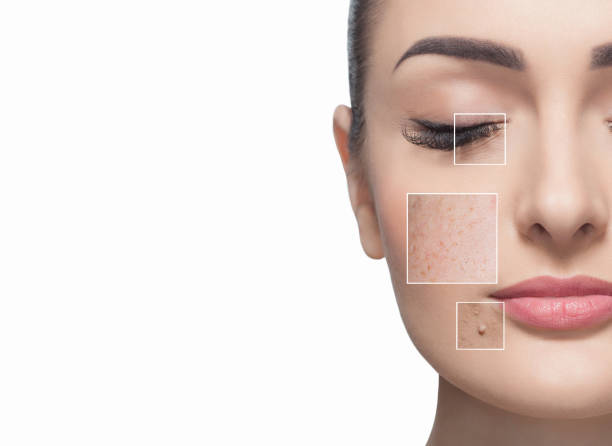While sun spots and freckles are fine, some people wish to prevent them from developing throughout the summer. It can be hard to prevent sun spots and freckles from forming in the summer heat. However, it is possible. It’s not difficult to learn the best prevention techniques. You can avoid sun spots on your skin by following my expert tips.
How to Avoid Summer Sun Spots?
Sunscreen and sun-protective clothing are recommended
Although it may seem obvious, this is an important point. Sunspots can be caused by sun exposure, especially if your skin has been sunburned or tanned. If you want to avoid sun spots from ever occurring, there are two things you need to do. First, you must apply sunscreen daily.
The amount of sunscreen you use to protect your skin from the sun is more important than the SPF number on the bottle. Apply at most a quarter-sized amount to your face. Apply a quarter-sized dollop of the cream to your chest and neck if they are exposed. Apply a second quarter-sized dollop if you spend time outdoors.
I recommend the Weightless Protection SPF 30, which I highly recommend. It was specifically designed for oily skin, but it is suitable for all skin types. It is a light formula that can dry to a matte finish. It won’t clog pores, or worsen your breakouts. It’s my daily go-to!
Sun-protective clothing is a great investment if you plan to spend time outdoors and don’t need to reapply sunscreen. It has a UPF rating, which is different than regular clothing. UPF stands for Ultraviolet Protection Factor. It is a measure of clothing’s sun protection. UPF clothing is not like regular clothing which allows UV light through the fabric’s weaves. It undergoes rigorous testing to ensure it provides adequate sun protection.
Wear a hat
Although this is a tip that goes with my sun-protective clothing tip, it’s still worth noting. It is smart to protect your skin from the sun while outside. In some cases, however, this can backfire. A hat can provide shade but can trap heat around the forehead. This can lead to pigmentation (AKA sunspot) – but more on this in a moment.
This is a good way to test it. Take off your hat outside. Do you feel cooler wearing it or without? Don’t wear a hat if it makes you feel hotter. You’re best to pick one made of lightweight, breathable fabrics (like those runners wear). This will help keep the sun off your skin and not trap heat.
Wear Sunglasses
It is a great way to protect the delicate skin around your eyes. This area is often the first to show signs that you are getting older. This can prevent you from squinting at bright light. This can help prevent wrinkles and fine lines from forming.
Research suggests that wearing sunglasses can help to prevent sun spots from developing on your skin. Researchers examined the effects of UV light on mice’s eyes. The skin darkened when the eyes were exposed to UV radiation. Further research revealed that UV light penetrates the photoreceptors of the eyes, causing the pituitary glands to produce melanin in the skin. Although this isn’t yet proven to be true or extrapolated to humans, it is still amazing and maybe another reason to wear sunglasses.
Avoid the Heat
Sunspots have been believed to be caused only by the sun for years. It is now known that melanin can also be stimulated by heat. It means that even if you use sunscreen regularly and seek shade, sun spots can still occur if your skin is exposed to too much heat.
Austin, Texas is where I live so it’s not surprising that the heat can sometimes be unavoidable. If you want to prevent sun spots, it is important that you avoid direct sunlight between 10 and 4pm. These are the hottest times of the day. Avoid saunas, steam rooms and hot yoga. These can all make pigmentation worse.
How to cool down overheated skin to prevent sun spots?
- Shade is what you should seek.
- Apply a cold compress to the neck.
- To quickly reduce your internal temperature, splash some ice-cold liquid on your skin.
- Gently rub a bag of frozen vegetables onto your skin.
- Make sure to keep an alcohol-free moisturizer in your fridge so it can cool down after cleansing.
- A gel-based mask should be kept in the refrigerator so it can cool and hydrate the skin.
- Take a swim in the ocean, lake or pool. You will notice a drop in your body temperature and a reduction in heat.
Use chemical exfoliants
Exfoliating regularly is one of the best ways you can manage skin discoloration, including sun spots. You can either use chemical exfoliation, or you can do physical exfoliation. To lower the pH and to dissolve dead cells, chemical exfoliation uses an acid such as glycolic, lactic or mandelic acids. This promotes cell turnover which can help fade pigmentation.
Exfoliating in summer can be a bit difficult for some people, as exfoliating with acidic exfoliants can make your skin more sensitive to sunlight. Exfoliating acids can be used as normal as long as sun protection is maintained.
Keep in mind that common sense is always a good thing. You might skip chemical exfoliation if you are going to the beach for a couple of days and know that you will be spending a lot of time in the sun.



